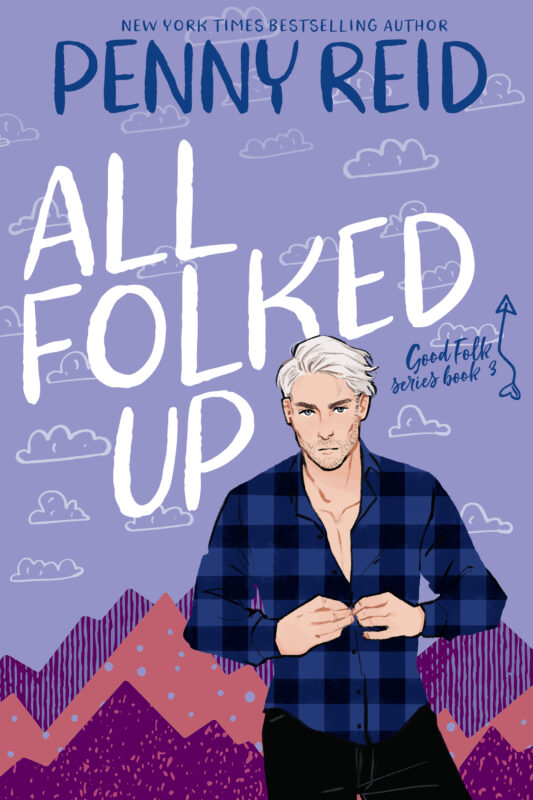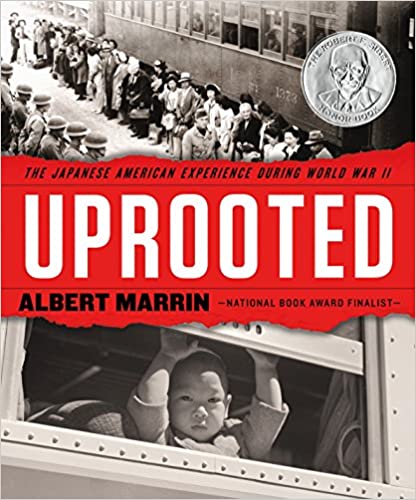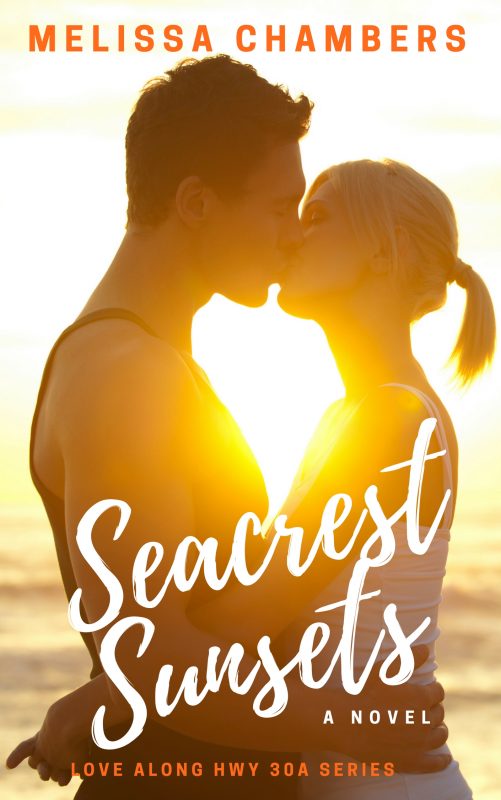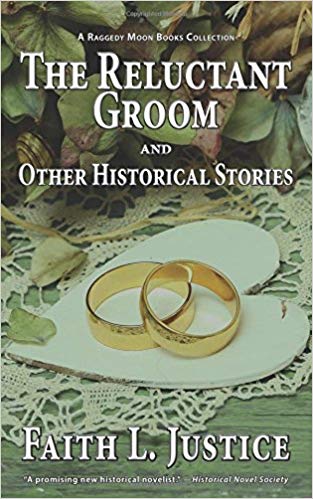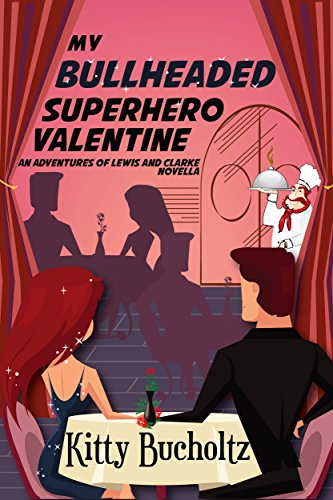10 Commandments of Grammar for Fiction Writers” with Grammar Divas – Annie Oortman & Darlene Buchholz
March 26, 2011 by A Slice of Orange in category Archives tagged as Online Class********** permission to forward **********
Hi everyone! Check out the exciting online classes offered by the
Orange County Chapter of RWA!
“10 Commandments of Grammar for Fiction Writersâ€
with Grammar Divas – Annie Oortman & Darlene Buchholz
April 11 – May 7, 2011
Love grammar? Hate grammar? Love to hate grammar?
Contrary to popular belief, grammar is not a sinister conspiracy plot designed by evil English teachers (the Grammar Gods) to ruin every writer in the free world’s fun by screwing with personal style. (Seriously, it’s not.)
However, good writing requires good grammar. Without it, you can’t really be sure your reader will understand the information you’re trying to convey, the story you’re trying to tell, and the mental picture you’re trying to paint. Which kind of defeats the purpose of fiction writing, right?
So what rules are the most important ones for a fiction writer to follow and which ones are kinda-follows? From subject-verb agreement to passive voice, faulty construction to misplaced modifiers, word choice and usage to quotation marks and commas, the Grammar Divas (an English teacher and a professional copywriter) sort through the all the rules and share in a fun yet informative way the ten most important grammar issues every fiction writer should understand and practice.
About the Instructors:
Grammar wasn’t Annie Oortman’s first love (actually, it was a cute boy in her second-grade class named Henry Talley) or even her second (avoiding barn work). However, after getting an A for content but an F for readability on a third-grade book report, she learned having great ideas was one thing, communicating them well on paper another. Annie became a disciple of the church of Proper Grammar. Nowadays, she aspires to become a romantic suspense author, diagrams sentences for fun (yes, for fun), and argues with Darlene on the acceptability of ending a sentence with a preposition. Don’t do it!
Darlene Buchholz fell in love in the first grade with a boy named Neil. He shared his crackers and milk at recess after someone took her snack and never got caught. By the third grade, she discovered Nancy Drew mysteries and developed a great passion for perky heroines who drove convertibles (proof they were in charge of their own lives). She’s written about romance and intrigue ever since. Darlene never thought of grammar as a challenge. It was, instead, a tool to help her express the ideas she felt passionate about, especially on the acceptability of ending a sentence with a preposition. Yes, you can!
Enrollment Information at http://www.occrwa.org/onlineclassApr11.html
COST: $20 for OCC members, $30 for non-members
Coming in May, 2011
“Some Like It Hotâ€
with Louisa Bacio
May 16 – June 11, 2011
Let’s talk about sex. Whether you’re writing a short story, novella or a full-length novel, an erotic thriller, paranormal or historical romance, the basics of the Erotic Romance remain the same: it’s all about plot and keeping it hot.
This workshop will cover the basics of characterization and motivation, and then delve into the heart: The sex scene(s). When writing about the physical aspects of love, it takes more than the cliché of “putting tab A into slot B.†The love scenes need to come organically from the work that’s being created, and the reader needs to believe in the connection.
Adult Content: Note that with the subject matter of this workshop, the language may become explicit. Come with an open mind, and be prepared to learn.
Erotic romance writer Louisa Bacio released her full-length novel PHYSICAL EDUCATION through Ravenous Romance and to quote Happily Ever After Reviews: “Ms. Bacio cleverly crafts a world of wicked pleasure and mystery that pulls the reader into this erotic thriller.†She’s currently working on an erotic paranormal set in New Orleans, and a sequel to Physical Education.
COST: $20 for OCC members, $30 for non-members
http://www.occrwa.org/onlineclasses.html Check out our full list of workshops.
Want to be notified personally two weeks before each class? Be sure you’re signed up for our Online Class Notices Yahoo Group!
Sign up at the bottom of http://www.occrwa.org/onlineclasses.html
or send a blank email to OCCRWAOnlineClassNotices-subscribe@yahoogroups.com
********** permission to forward **********
Bigger Books and Themes
March 25, 2011 by A Slice of Orange in category Lyon's Lair tagged as books, Jennifer Lyon, Lyon's Lair, themesby Jennifer Lyon
A friend and I were discussing what makes a “bigger†book. There’s no real definition for bigger, but the one thing I can guarantee you is that it’s not word count. Words are a tool to tell a story, they are NOT the story.
So what is “bigger?†I think it comes down to universal themes that resonate with a larger audience.
For instance, in the Harlequin/Silhouette category books, like Desire, Special Edition, Super Romance, etc, the writing is tightly focused on the emotions of falling in love, and therefore, limits the audience. That does NOT make these books any less enjoyable, it just narrows the audience.
But a bigger book has more ‘commercial’ themes. As an example, let’s talk about the movie Ghost. It works the same in books or movies, and my husband and I just watched it over the weekend so it’s fresh in my mind. The movie has been out for something like 20 years, yet it has a timeless quality to it, and I think that’s because of its themes.
The sudden loss of a loved one. Every person has or will experience this.
What happens when we die? Look at all the books, movies, religions and philosophies dedicated to trying to explain it.
Can a dead loved one reach us? Can we reach them? There’s a whole industry of psychics and others making money off “contacting the dead.†The emotional fragility of grieving will make even the strongest of us reach for any flicker of hope.
Letting go of a loved one. There’s many shades to this one. In the movie, it was time for the hero and heroine to let go of each other so the hero could move on. I had a moment like that with my mom at the very end of her life. She was so sick and I remember the moment clearly where I finally closed my eyes and said to my deceased brother; “You can have her now. Anything to stop her pain.†I was ready to let her go and she passed soon after that.
Betrayal by a friend. In the movie, the hero is betrayed by someone he knows and trusts. Who hasn’t at least seen that happen if not experienced it?
These themes touch all of us, helping us to relate to the movie or book on a personal, intimate level. And that helps create a bigger feel to the book.
In my books, I try to find these universal themes. It’s even more important, I think, because I’m writing paranormal. In NIGHT MAGIC, my heroine, Ailish, is handfasted to a demon and has two weeks to either complete the bond and become a demon witch (who is evil), or she dies.
Now I doubt many of us have ever been in that predicament. But the core theme there is something like: Can a good person be betrayed or tricked into becoming evil? That’s a pretty timeless theme, one that religions have explored and argued since the beginning of time. These themes spin off into more:
Betrayal: Ailish trusted her mother, and she betrayed her.
Redemption: Can Ailish atone for a mistake she made when she was 16?
Handicap: Ailish is blind, something that I believe really humanizes her.
Can she face her own death?
How far will the man who loves her go to save her?
I’m using the idea of “themes†here loosely, but these are the universal concepts that we have some familiarity with and therefore connect us to the characters strongly enough to feel like we’re in their skin. We understand their struggles and conflicts.
P.S. NIGHT MAGIC, the third book in my Wing Slayer Hunter Series went on sale March 22nd, and the forth book SINFUL MAGIC will be out May 31st.
Jennifer Lyon always wanted to be a witch. When her witch-powers didn’t materialize, she turned to creating magic in her books. NIGHT MAGIC is the third book in an enchanting, passionate and supernatural series. Jen’s also has a super secret alter ego known as Jennifer Apodaca, the author of the award winning Samantha Shaw Mystery Series. Visit Jen at http://www.jenniferlyonbooks.com/
Askers and Guessers/Requesters and Diviners which are you? from Isabel Swift
March 24, 2011 by Isabel Swift in category From Isabel Swift tagged as Personality typesI have always enjoyed reading advice columnists, a pleasure which has increased with the advent of the net and the ability of others to post comments on both their opinion of the advice as well as responses to the LW (letter writer in advice column parlance!).
My brilliant friend and sf writer, Ellen Kushner, shared this link, which links to this link, which offers the following paradigm that presents and explains the two different, and occasionally contentious cultures of the Asker (Requester) Vs the Guesser (Diviner). It’s a facinating–and I found very helpful–insight into how differently people react to the same stimulus. Here’s an exerpt from one of the links that lays out the paradigm in a response to a query:
“This is a classic case of Ask Culture meets Guess Culture.
“In some families, you grow up with the expectation that it’s OK to ask for anything at all, but you gotta realize you might get no for an answer. This is Ask Culture.
In Guess Culture, you avoid putting a request into words unless you’re pretty sure the answer will be yes. Guess Culture depends on a tight net of shared expectations. A key skill is putting out delicate feelers. If you do this with enough subtlety, you won’t even have to make the request directly; you’ll get an offer. Even then, the offer may be genuine or pro forma; it takes yet more skill and delicacy to discern whether you should accept.
“All kinds of problems spring up around the edges. If you’re a Guess Culture person — and you obviously are — then unwelcome requests from Ask Culture people seem presumptuous and out of line, and you’re likely to feel angry, uncomfortable, and manipulated.
“If you’re an Ask Culture person, Guess Culture behavior can seem incomprehensible, inconsistent, and rife with passive aggression.
“Obviously she’s an Ask and you’re a Guess. (I’m a Guess too. Let me tell you, it’s great for, say, reading nuanced and subtle novels; not so great for, say, dating and getting raises.)
“Thing is, Guess behaviors only work among a subset of other Guess people — ones who share a fairly specific set of expectations and signalling techniques. The farther you get from your own family and friends and subculture, the more you’ll have to embrace Ask behavior. Otherwise you’ll spend your life in a cloud of mild outrage at the Cluelessness of Everyone.
“As you read through the responses to this question, you can easily see who the Guess and the Ask commenters are. It’s an interesting exercise.”
posted by tangerine at 11:38 PM on January 16, 2007 [859 favorites]
You will indeed be able to determine which are Ask and which Guess as you read the comments. Though I hate to call them “guessers” as this type works hard to read the signals so they aren’t guessing. What seems particularly poignant is that even after the two positions are explained, some of the responders are still on their moral high horse of outrage, excoriating the hapless requester as being poorly brought up and horrifyingly rude.
This is what diversity training is all about! We tend to work from our own experience and make assumptions about behavior based, naturally, on ourselves. And I must say it makes me nervous when people are vilified for behaving differently. For, as Hamlet notes to his friend, “There are more things in heaven and earth, Horatio, than are dreamt of in your philosophy.” (Hamlet, Act 1, Scene 5)
So if you are a Diviner/Guesser, try to avoid feeling pressured by a request. Channel your inner Asker and realize you can Just Say No. Really. They will likely not hate you forever. They were just asking! And by the same token as a Diviner, work on asking more, hating people forever less, and finding a reasonable common ground.
If you’re an Asker/Requester, try to avoid putting pressure on with a request if you don’t know the person well–or even if you do. Try to offer a face-saving out or reassurances. There are mine fields, and whether you choose to be aware of them or not, you may lose limbs and/or friendships!
I hope you found this as insightful as I did. I confess to being a diviner, but have close family members who are askers. I work on responding in kind and trying to channel their straightforwardness when I need it!
So…are you a requester or diviner?
Contest Deadlines
March 21, 2011 by Marianne H. Donley in category Archives tagged as Contests, Orange Rose Contest for UnpublishedUpdated and all sites tested…Compiled by Donna Caubarreaux….May be forwarded with credits.
….
- EA = Electronic Format Available
- EA/Non US = Electronic for Foreign Entries
- EO = Electronic Only
- MO = Members Only
- U = Unpublished
- P = Published
- P/3 = Not published in three years
- Pnr = Published, but not by RWA standards
- PC = Not published in category selected
APRIL CONTEST DEADLINES
..
Fool for Love Contest (EO – U – P)
Virginia Romance Writers
Received no later than Midnight April 1, 2011
First fifty pages plus optional synopsis, five page max.
http://www.virginiaromancewriters.com/Contests/ffl.html
..
Magic Moment (U – P/5)
Heart and Scroll RWA
Postmarked by April 1, 2011
First ten pages.
http://www.heartandscroll.com/contest_MagicMoment_rules.htm
..
Romancing the Script
Scriptscene Chapter
Deadline: April 1, 2011
First act not to exceed thirty pages.
http://www.scriptscene.org/
..
Royal Ascot Contest (EO – U – P/5)
The Beau Monde Chapter
Received no later than Midnight April 1, 2011
First 7K words and optional synopsis limit 500 words.
http://thebeaumonde.com/royalascot/
..
Touched by Love Contest (U – P/3 – EO)
Faith, Hope & Love Chapter
Received no later than Midnight April 1, 2011
First thirty pages and unjudged synopsis up to two pages double-spaced.
http://www.faithhopelove-rwa.org/tbl.html
..
Orange Rose Contest (U – EO – P/5)
Orange County Chapter RWA
Received by April 9, 2011
Beginning and synopsis not to exceed 55 pages.
http://www.occrwa.org/orangerosecontest/
…..
- Check out Contests and Contest Winners on: http://contestdivas.blogspot.com/
- Check out the Award Winning Romance Books on: http://awardwinningromances.blogspot.com/
- Contest Alert-All the news on upcoming contests, plus Finalist & Winner listings, questions, etc. Sign up now! ContestAlert-subscribe@yahoogroups.com
- Announcement only list: ContestDeadlines-subscribe@yahoogroups.com
- For Published Authors ContestAlertPublished-subscribe@yahoogroups.com
- If you’re a Contest Judge, join ContestsJudges-subscribe@yahoogroups.com
Donna Caubarreaux is a member of Coeur de Louisiane, Scriptscene Chapter, NOLA Stars, Heart of Louisiana, and Kiss of Death. She received a RWA Service Award in 1997
What it’s all about – and yes, it can happen to all of us.
March 19, 2011 by Marianne H. Donley in category Archives tagged as First Book, Member At Large, Monica Stonerby Monica Stoner, Member at Large
We sit in front of our screens, our typewriters, our yellow pads, pouring thoughts and emotions out for the world to see with the hopes some day the world will see. Other than our critique partners, our supportive friends and a few anonymous contests judges, our words’ world is very small. We dream of the day we get the call, and as we keep typing, keep plotting, keep running scenes through our heads while going through grocery checkout, deep down inside we start to wonder. What’s it all about? Is it really worth the time investment?
Sure we need to give a home to our characters. One day. In the meantime there are so many demands on our energy, and to say “I can’t, I have to write†becomes weaker and weaker as the weeks, months, and years slide past. Until “I have to write†segues into “I’ll write later†and the span between writing times grows. We pull ourselves out of the pit from time to time, take a class or two, jot down some plot ideas, maybe enter a contest. Or maybe judge a contest, telling ourselves we’re “giving back†or “keeping our hand in.†We keep up our memberships, though sometimes we wonder if that money couldn’t be spent better elsewhere. Giving up our memberships and meetings might mean we are giving up on ourselves as writers.
Because we retain our memberships, nurturing that tiny spark of hope we hope will rise into a flame; because we still plot, still polish, still review, one day we participate in a pitch contest, and we’re asked to submit. Or we learn of a publisher “actively seeking manuscripts.†And we have just that – a manuscript ready to submit to a publisher for consideration. Maybe we’ve done this before with less than stellar results, until “we find your ideas interesting but your writing is not up to our standards†becomes worse than “it’s not you, it’s me, I need live more before I settle down.â€
This time, though, this time it just might be different. And we send our polished, pressed, primped child off to the prom with an introduction but without us to stand behind them when they fall. We get the automatic acknowledgment of receipt with a promise to get back to us, and an advisory to ask if we haven’t heard within a span of from one to three months. One to three months, can we hold our breath that long?
Conditioned by past disappointments, we put thoughts of the submission out of our minds and go about our every day lives. Houses still need to be cleaned, snow shoveled or sidewalks swept and the laundry never ends. We tell ourselves not to hope, not to think about it, and wait for the rejection so we can at least apply for our PRO status. When the e-mail comes back in a long weekend, we sit with fingers poised on the keys, hand dropped over the mouse, take a deep breath, and click. Such a fast response can’t be anything good, can it? The message opens on the screen, and you read:
“I am pleased to tell you that I enjoyed your Into the Woods very much. I found only minor editing problems as I read, mainly punctuation errors, as well as your tendency to shift POV in mid scene, sometimes in mid paragraph. But these are easy fixes. For the most part, Into the Woods is very well written.â€
She said WHAT??
“If you are interested in publishing Into the Woods with us, please let me know, and I will have our attorney prepare a contract for you.â€
Does that REALLY say what we think we’re reading? Better print it out, just in case. Yep, the words are the same on the page as they are on the screen. Gulp. A Sally Field moment, for sure. “For the most part Into the Woods is very well written.†Yep, that’s what she said.
Oh. My. God. It really happened. Someone who doesn’t know you likes your writing and wants to introduce your people to the world. You are a writer. For years you’ve been telling yourself and others the sheer act of putting words on the page makes you a writer. And it does. But now you are a Writer.
Yes, it happened to me. I sent off “Into the Woods†to Black Opal Books on February 17, and had an answer on February 22. I just finished the first round of edits, they want to change the name, and I’m looking at cover art. While doing this for “Into the Woods,†I’m grooming another book to send, this time with fewer dashes and ellipses and without a ping ponging Point of View.
All the years of wishing and hoping and helping out the chapters and taking notes at workshops has paid off. Could I have done it without the fantastic support system set up by and for Romance writers? Maybe, but I doubt it. This one’s for you, OCC. Thank you to everyone who has supported, critiqued, pushed, nagged and given out tough love.
This one’s for Michelle, who gave me OCC’s address. Love ya babe.
Affiliate Links
A Slice of Orange is an affiliate with some of the booksellers listed on this website, including Barnes & Nobel, Books A Million, iBooks, Kobo, and Smashwords. This means A Slice of Orange may earn a small advertising fee from sales made through the links used on this website. There are reminders of these affiliate links on the pages for individual books.
Search A Slice of Orange
Find a Column
Archives
Featured Books
UPROOTED: THE JAPANESE AMERICAN EXPERIENCE DURING WORLD WAR II
A Publishers Weekly Best Book of the Year, A Booklist Editor's Choice
More info →THE RELUCTANT GROOM AND OTHER HISTORICAL STORIES
Enjoy historical fiction? Like short stories? Then dive into this collection of historical shorts by an award-winning author.
More info →MY BULLHEADED SUPERHERO VALENTINE
Maybe just one night out won’t hurt.
More info →Newsletter
Contributing Authors
Search A Slice of Orange
Find a Column
Archives
Authors in the Bookstore
- A. E. Decker
- A. J. Scudiere
- A.J. Sidransky
- Abby Collette
- Alanna Lucus
- Albert Marrin
- Alice Duncan
- Alina K. Field
- Alison Green Myers
- Andi Lawrencovna
- Andrew C Raiford
- Angela Pryce
- Aviva Vaughn
- Barbara Ankrum
- Bethlehem Writers Group, LLC
- Carol L. Wright
- Celeste Barclay
- Christina Alexandra
- Christopher D. Ochs
- Claire Davon
- Claire Naden
- Courtnee Turner Hoyle
- Courtney Annicchiarico
- D. Lieber
- Daniel V. Meier Jr.
- Debra Dixon
- Debra H. Goldstein
- Debra Holland
- Dee Ann Palmer
- Denise M. Colby
- Diane Benefiel
- Diane Sismour
- Dianna Sinovic
- DT Krippene
- E.B. Dawson
- Emilie Dallaire
- Emily Brightwell
- Emily PW Murphy
- Fae Rowen
- Faith L. Justice
- Frances Amati
- Geralyn Corcillo
- Glynnis Campbell
- Greg Jolley
- H. O. Charles
- Jaclyn Roché
- Jacqueline Diamond
- Janet Lynn and Will Zeilinger
- Jeff Baird
- Jenna Barwin
- Jenne Kern
- Jennifer D. Bokal
- Jennifer Lyon
- Jerome W. McFadden
- Jill Piscitello
- Jina Bacarr
- Jo A. Hiestand
- Jodi Bogert
- Jolina Petersheim
- Jonathan Maberry
- Joy Allyson
- Judy Duarte
- Justin Murphy
- Justine Davis
- Kat Martin
- Kidd Wadsworth
- Kitty Bucholtz
- Kristy Tate
- Larry Deibert
- Larry Hamilton
- Laura Drake
- Laurie Stevens
- Leslie Knowles
- Li-Ying Lundquist
- Linda Carroll-Bradd
- Linda Lappin
- Linda McLaughlin
- Linda O. Johnston
- Lisa Preston
- Lolo Paige
- Loran Holt
- Lyssa Kay Adams
- Madeline Ash
- Margarita Engle
- Marguerite Quantaine
- Marianne H. Donley
- Mary Castillo
- Maureen Klovers
- Megan Haskell
- Melanie Waterbury
- Melisa Rivero
- Melissa Chambers
- Melodie Winawer
- Meriam Wilhelm
- Mikel J. Wilson
- Mindy Neff
- Monica McCabe
- Nancy Brashear
- Neetu Malik
- Nikki Prince
- Once Upon Anthologies
- Paula Gail Benson
- Penny Reid
- Peter Barbour
- Priscilla Oliveras
- R. H. Kohno
- Rachel Hailey
- Ralph Hieb
- Ramcy Diek
- Ransom Stephens
- Rebecca Forster
- Renae Wrich
- Roxy Matthews
- Ryder Hunte Clancy
- Sally Paradysz
- Sheila Colon Bagley
- Simone de Muñoz
- Sophie Barnes
- Susan Squires
- T. D. Fox
- Tara C. Allred
- Tara Lain
- Tari Lynn Jewett
- Terri Osburn
- Tracy Reed
- Vera Jane Cook
- Vicki Crum
- Writing Something Romantic
Affiliate Links
A Slice of Orange is an affiliate with some of the booksellers listed on this website, including Barnes & Nobel, Books A Million, iBooks, Kobo, and Smashwords. This means A Slice of Orange may earn a small advertising fee from sales made through the links used on this website. There are reminders of these affiliate links on the pages for individual books.

